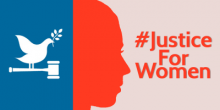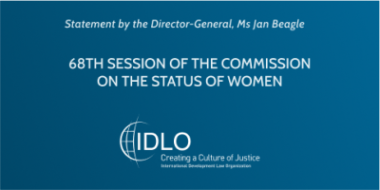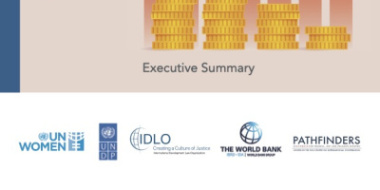Developing an Access to Justice Index in Indonesia
The Government of Indonesia is committed to providing fair, transparent, effective, non-discriminatory and accountable services to promote access to justice for all, including members of vulnerable groups. A national program to safeguard access to justice was included in the National Strategy on Access to Justice 2016-2019. Yet, a national tool to collect data and measure the levels of access to justice for people in the country is still missing.














